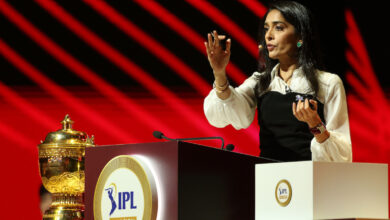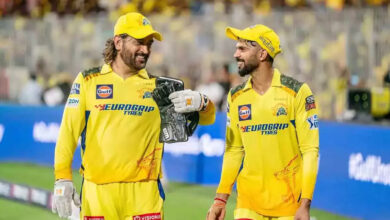When Henry Kissinger called chess great Bob Fischer to coax him to play Boris Spassky in Match of the Century | Chess News

For the rest of the world, Henry Kissinger was a diplomat who helped mend ties between the United States and China and played a key role in the United States’ pull out from Vietnam. He was a man who wielded considerable influence and power: he was the US’ national security advisor and secretary of state who had the ear of two US presidents, Richard Nixon and Gerald Ford. But in the world of sport, Kissinger, who passed away at the age of 100 on Thursday, was a man who used his soft power to force the Match of the Century, between Bob Fischer and Boris Spassky, to go ahead.
Back in 1972, the world waited anxiously for Fischer’s next move. The American Grandmaster, who had earned his shot at the crown held Soviet Union’s Spassky, had spent days in Pasadena, sequestered away from the world. He had made audacious demands for the 1972 World Championship match to go ahead, in the process frustrating the Soviets, the Americans and everyone in Iceland, where the match was going to be held.
The reigning world champion Spassky, on the other hand, landed in Iceland 12 days before the match and began acclimatizing. As the date for the traditional drawing of colours ceremony approached, Fisher’s whereabouts were unknown besides the fact that he had been spotted at JFK Airport, but had fled away in a taxi when photographers snapped a photo of him.
At one point, a British businessman offered $1,25,000 for the winner of the Fischer-Spassky showdown in hopes of convincing the American to fly to Reykjavík.
At another point, a journal cheekily asked Icelandic Chess Federation official Gudmundur Thorarinsson if he had ever seen Fischer in person, and whether he had ‘any proof that Fischer exs?’ The press conference room rang out with laughter at the question, but everyone was on edge about the antics of the whimsical and paranoid Grandmaster from the United States of America.
The match had higher ranging implications. It was a proxy war to be fought in the trenches on the chequered squares while the Cold War raged in the world between the Commun ideology of the Soviet Union and the capitalism-loving USA.
As his close friends tried to coax him to travel to Iceland, Fischer got a phone call.
Rumour has it that the man on the other end started off with the words, “This is the worst chess player in the world calling the best chess player in the world.”
A report in The Guardian states that it was American President Richard Nixon himself who ordered Kissinger to intercede personally.
Not too many other details are known about the call or what was said. But Fred Cramer, Fischer’s spokesman and then the vice president of the United States Chess Federation, confirmed to The New York Times that the call did happen.“Henry L Kissinger had telephoned the American chess star here. Mr. Cramer would give no details of the call. He would not say when it had been made or what had been said. It is believed, however, that Kissinger, President Nixon’s closest adviser on foreign policy, had urged Fischer—who had threatened to walk out on the world championship chess match with the titleholder, Boris Spassky of the Soviet Union, to continue with the match,” a report in The New York Times read.
Later, Kissinger is said to have reportedly told the media, “In short, I told Fischer to get his butt over to Iceland.”
And that’s just what Fischer did, landing in Iceland to a maelstrom of media frenzy. For once, no one was joking if there was proof that Fischer exed.
The 24-game World Championship battle was one of the most entertaining yet tense showdowns in the hory of the sport: Fischer came late for Game 1; the American forfeited Game 2 because he wanted the “noisy” cameras removed from the playing arena; the organisers were forced to play Game 3 in a tiny table tennis hall behind the main stage. There were other shenanigans during the ill-tempered match too, the paranoid Soviet contingent fired Spassky’s second Iivo Nei for being too friendly with outsiders. The Soviets also claimed that Fischer had “wired the chairs” and was using electronics to unsettle the reigning world champion. This led to the officials running the chairs through X Ray equipment, which revealed two dead flies inside one of the chairs.
Eventually, Fischer was crowned the champion, with Spassky resigning in the decisive game over a phone call.
The world got its 11th world champion that year. But it almost didn’t happen, until a phone call from Henry Kissinger.







